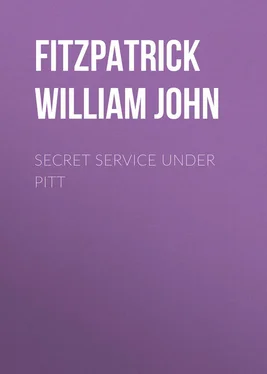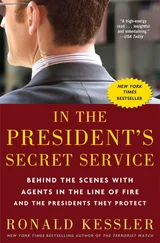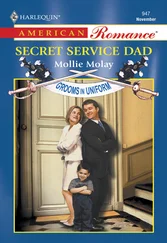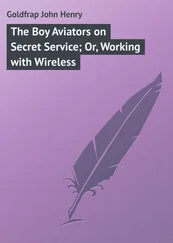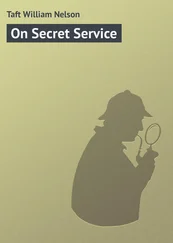William Fitzpatrick - Secret Service Under Pitt
Здесь есть возможность читать онлайн «William Fitzpatrick - Secret Service Under Pitt» — ознакомительный отрывок электронной книги совершенно бесплатно, а после прочтения отрывка купить полную версию. В некоторых случаях можно слушать аудио, скачать через торрент в формате fb2 и присутствует краткое содержание. Жанр: foreign_antique, foreign_prose, на английском языке. Описание произведения, (предисловие) а так же отзывы посетителей доступны на портале библиотеки ЛибКат.
- Название:Secret Service Under Pitt
- Автор:
- Жанр:
- Год:неизвестен
- ISBN:нет данных
- Рейтинг книги:5 / 5. Голосов: 1
-
Избранное:Добавить в избранное
- Отзывы:
-
Ваша оценка:
- 100
- 1
- 2
- 3
- 4
- 5
Secret Service Under Pitt: краткое содержание, описание и аннотация
Предлагаем к чтению аннотацию, описание, краткое содержание или предисловие (зависит от того, что написал сам автор книги «Secret Service Under Pitt»). Если вы не нашли необходимую информацию о книге — напишите в комментариях, мы постараемся отыскать её.
Secret Service Under Pitt — читать онлайн ознакомительный отрывок
Ниже представлен текст книги, разбитый по страницам. Система сохранения места последней прочитанной страницы, позволяет с удобством читать онлайн бесплатно книгу «Secret Service Under Pitt», без необходимости каждый раз заново искать на чём Вы остановились. Поставьте закладку, и сможете в любой момент перейти на страницу, на которой закончили чтение.
Интервал:
Закладка:
It may not have struck Mr. Froude, as it certainly strikes me, that the man he describes 143 143 English in Ireland , iii. 278.
as visiting Lord Downshire, and at the last moment offering to betray, was the same person whom the historian, one hundred pages previously, notices as an informer, 'in the closest confidence of the Northern Leaders , but whose name is still a mystery.'
It will be seen that Pelham's correspondent of 1796 had fallen into debt and difficulties. This at first seems not consistent with the statement of Mr. Froude that Downshire's visitor was the son of a gentleman of good fortune in the North. But it is easy to see that the son himself had got into pecuniary straits. He tells Downshire of the expenses he is under, and asks Pitt for a 'cool 500 l. ' 144 144 Ibid. iii. 284.
to begin with.
In addition to a judgment debt of 1,500 l. which Jacob Turner in his will forgives his son Samuel, 145 145 Irish Record Office.
I find, on examining the records of the three Law Courts, that another judgment debt of 800 l. was marked against Samuel Turner on January 26, 1793. 146 146 Judgment Registry, Four Courts, Dublin, No. 302.
Speaking of informers, Mr. Froude writes under date 1796: —
One of these especially, whose name is still a mystery, was in the closest confidence of the Belfast leaders. He had been among the most enthusiastic of the original members of Tone's society, but he had fallen into debt to others of the confederates and had been expelled. In revenge he sold himself to the Government, satisfied his creditors with money which he received from Pelham, and was at once taken back into confidence. Among others, he became an intimate associate of William Orr, a Belfast tradesman, afterwards executed for treason, who at this time was a member of the Head Northern Committee.
Orr told him that everything was ready. Dublin, Cork, Limerick, were waiting only for orders to rise, and when the word was given the movement was to be universal and simultaneous. They had 200,000 men already officered in regiments; they had pikes and muskets for 150,000, and more were on the way.
The militia were almost to a man United Irishmen, and in fact, according to Orr, they would have risen in the autumn but for some differences among themselves. For himself, the informer thought that nothing would be attempted till the arrival of the French.
The Belfast men, Neilson, Orr, the two Simms, the party who had taken the oath with Wolfe Tone on Cave Hill, 147 147 Tone's Life (i. 128) describes how, before leaving for America in 1795, he swore to his friends who surrounded him on Cave Hill never to desist from his efforts until Ireland was free.
he described 'as wealthy, wily, avaricious, tenacious of their property, distrustful of one another, and if afraid of nothing else, desperately afraid of the Orangemen, who were five times stronger than people in general believed. 148 148 This is quite Turner's style.
They had authentic news that Hoche might be expected in the fall of the year, and then undoubtedly an effort would be made. If Hoche came, they were perfectly confident that Ireland would be a republic before Christmas. The instant that the signal was given the whole Orange party were to be assassinated…
The Informer concludes with these words: —
Be assured that what I have told you is true. The original agitators have been kept concealed even from the knowledge of the common people. The medium of dissemination has been the priests, and they have concealed from their congregations, on whom they have so effectively wrought, the names of those who have set them on, merely saying that there were men of influence, fortune, and power ready to come forward. The motive of the original agitators – and I mean by them the members of the Catholic Committee that sat in Dublin, and many of the Convention that were not on the Committee – was to carry the Catholic Bill through Parliament by the influence of terrorism. 149 149 Froude, iii. 176. The original objects of the Society of United Irishmen were parliamentary reform and Roman Catholic emancipation.
So much for the informer who sought the ear of the Irish Secretary in 1796. His close connection with the Northern leaders, his air of mystery, his hatred of the priests and the Catholic Committee, even his style and tone, the reference to Hoche, the prediction that the Protestants would suffer if the rebels won – all point to him as the same person who made overtures to Pitt, through Downshire, in October 1797. The alleged disaffection of the militia and the danger which menaced the estates of the aristocracy again crop up in Turner's letter to Talleyrand. 150 150 Ante , p. 25 .
In both cases the same stipulation is made that he should not be called upon to give evidence publicly – the same nervous temperament is revealed. Downshire's visitor expressed mortal terror lest his life should pay the forfeit of his startling whisper. The same fear – and I believe I may add, presentiment – pervades the letter to Pelham in 1796. 'Don't name it,' he writes; 'if it get out they will know whence it came, and my life will be the certain forfeit.' 151 151 The Rev. Arthur McCartney, vicar of Belfast, stated that he had never heard of a Committee of Assassination existing in Belfast with the cognizance or sanction of the leaders of the United Irishmen.
The 'secret' which the informer of '96 told Pelham was what Mr. Fronde describes as 'a curious story.' 'To show you that they tell me their secrets,' writes the informer to Pelham, 'here is the account told me of the death of Mr. McMurdoch of Lurgan .' 152 152 Froude's English in Ireland , iii. 175.
From searches made in the Registry of Deeds Office, Dublin, I find that Samuel Turner was closely connected with Lurgan, and in a way which gave double facilities for acquiring its secrets. 153 153 The following memorandum, though of no political import, is useful as an authentic record of facts: — '1791, February 13. Samuel Turner and Jacob Turner his father, both of Turner's Hill, co. Armagh, Esquires, to John McVeagh of Lurgan. Conveyance of Premises in Lurgan. '1794, October 8. Samuel Turner of Newry, and Jane Turner, late of Lurgan, now of Newry, to Thompson and others. Premises in Lurgan. The Teelings, with whom Turner claims to be intimate, came from Lurgan.' See Webb's Irish Biography .
The reader might glance once more at Mr. Froude's account of the visit to Lord Downshire on that dark October night in 1797. The betrayer's disguise and stealthy nervous gait as though some avenging power were on his track, are things worth noting. Why was he in such dread of assassination before he unfolded his story to Downshire? Surely he must have been conscious of having earned, for a long time before, the penalty of 'Ormond steel.' 154 154 See Conlan's sworn information, Appendix.
This, according to Dr. Conlan's sworn testimony, was a specially familiar dogma with Teeling and Turner when organising treason in Ulster. The visit to Downshire was clearly prompted by greed. This peer had got the name of having secret service money at his disposal. 'Bank notes were offered to me,' observes James Hope, the working weaver of Belfast, 'if I would implicate Will Tennant, Robert Simms and others, and it was admitted that the money came from Lord Downshire.' This was probably among the efforts which were made to induce minor conspirators to give evidence publicly against their leaders, of whose treason the Crown had private knowledge through Turner. 155 155 James Hope to the late Mr. Hugh McCall, of Lisburn. See Webb's Irish Biography for an appreciative notice of Hope.
McDougall's 'Sketches of Irish Political Characters,' published in 1799, says of Lord Downshire (p. 20): 'His political conduct agrees very well with his motto, Ne tentes, aut perfice ; he supports administration with all his might.' Downshire's visitor knew, therefore, that this peer, if he liked, could make good terms with Pitt. Much of the melodramatic character of the scene appears to have been designed to move Downshire. 'He saw Mr. Pitt' says Froude, 'who consented that "the person's" services should be accepted.'
Интервал:
Закладка:
Похожие книги на «Secret Service Under Pitt»
Представляем Вашему вниманию похожие книги на «Secret Service Under Pitt» списком для выбора. Мы отобрали схожую по названию и смыслу литературу в надежде предоставить читателям больше вариантов отыскать новые, интересные, ещё непрочитанные произведения.
Обсуждение, отзывы о книге «Secret Service Under Pitt» и просто собственные мнения читателей. Оставьте ваши комментарии, напишите, что Вы думаете о произведении, его смысле или главных героях. Укажите что конкретно понравилось, а что нет, и почему Вы так считаете.
